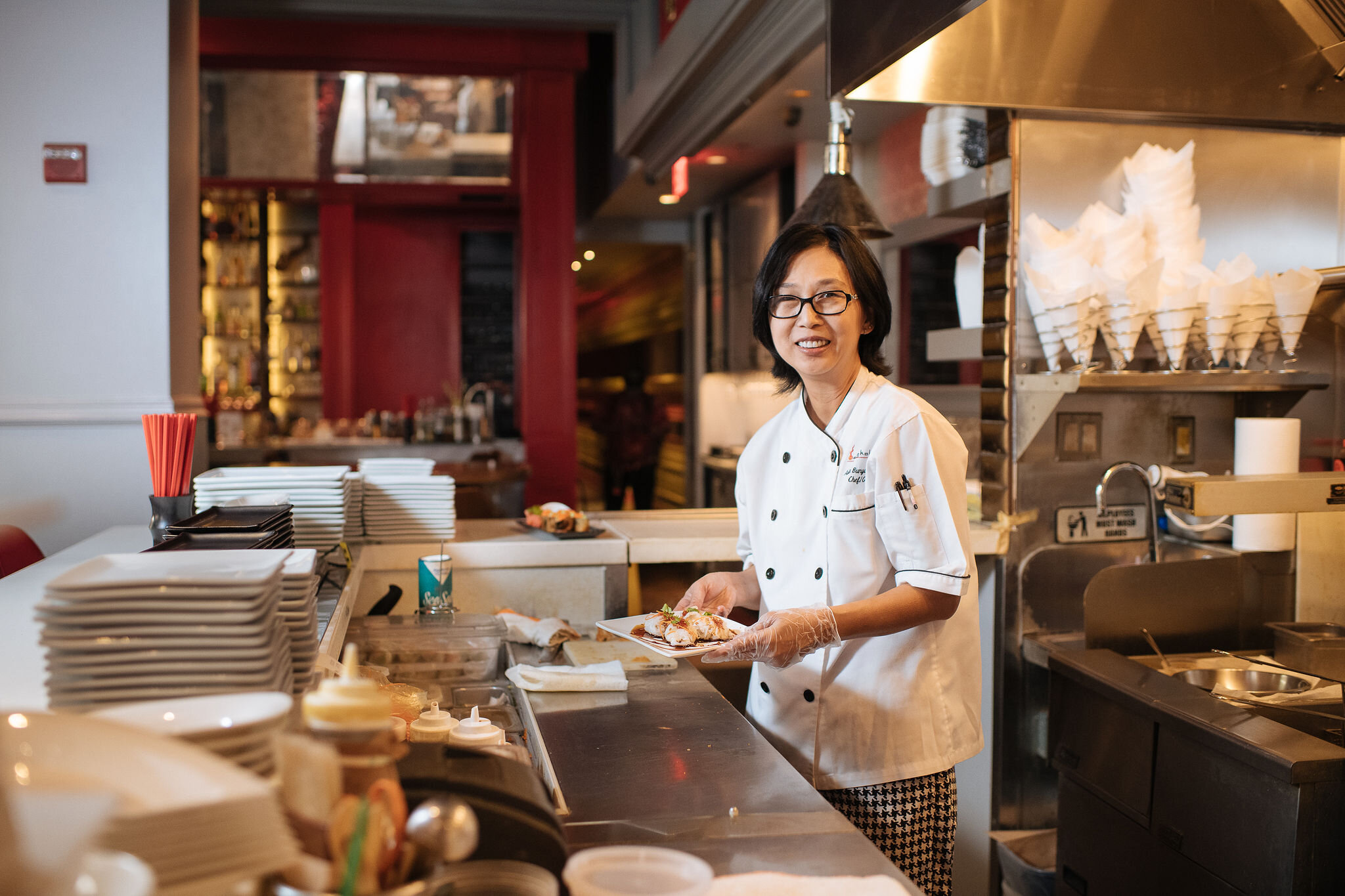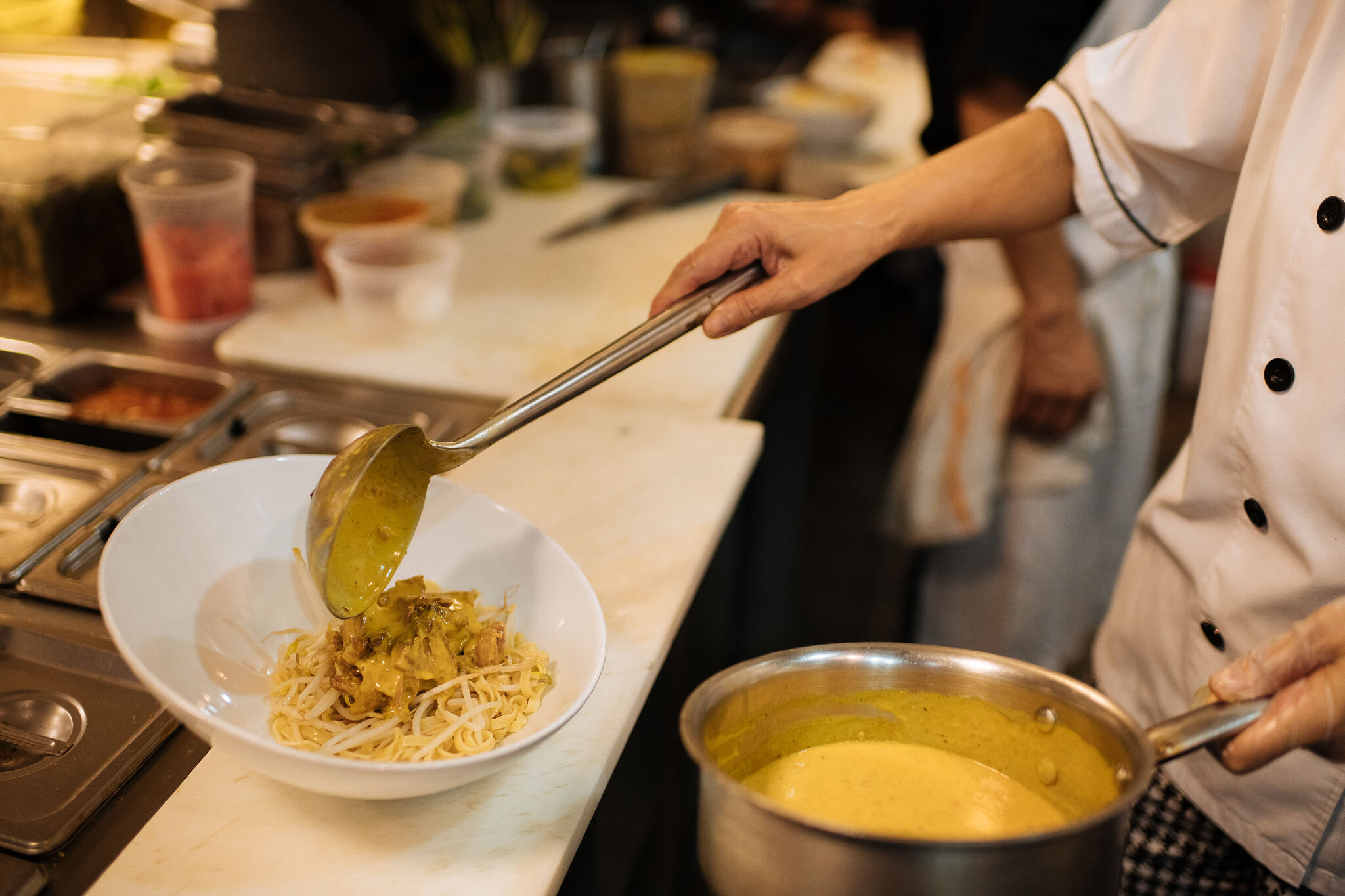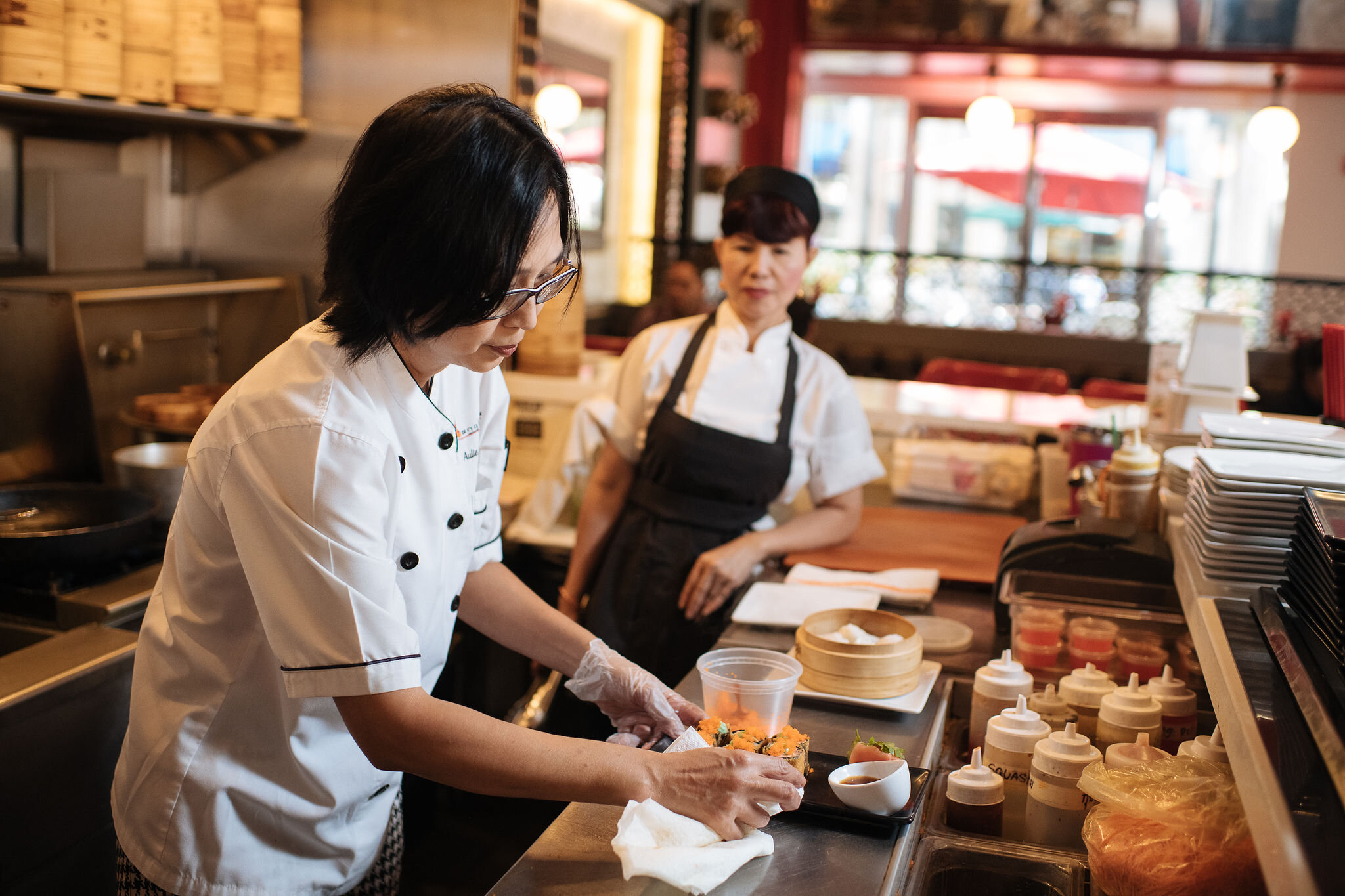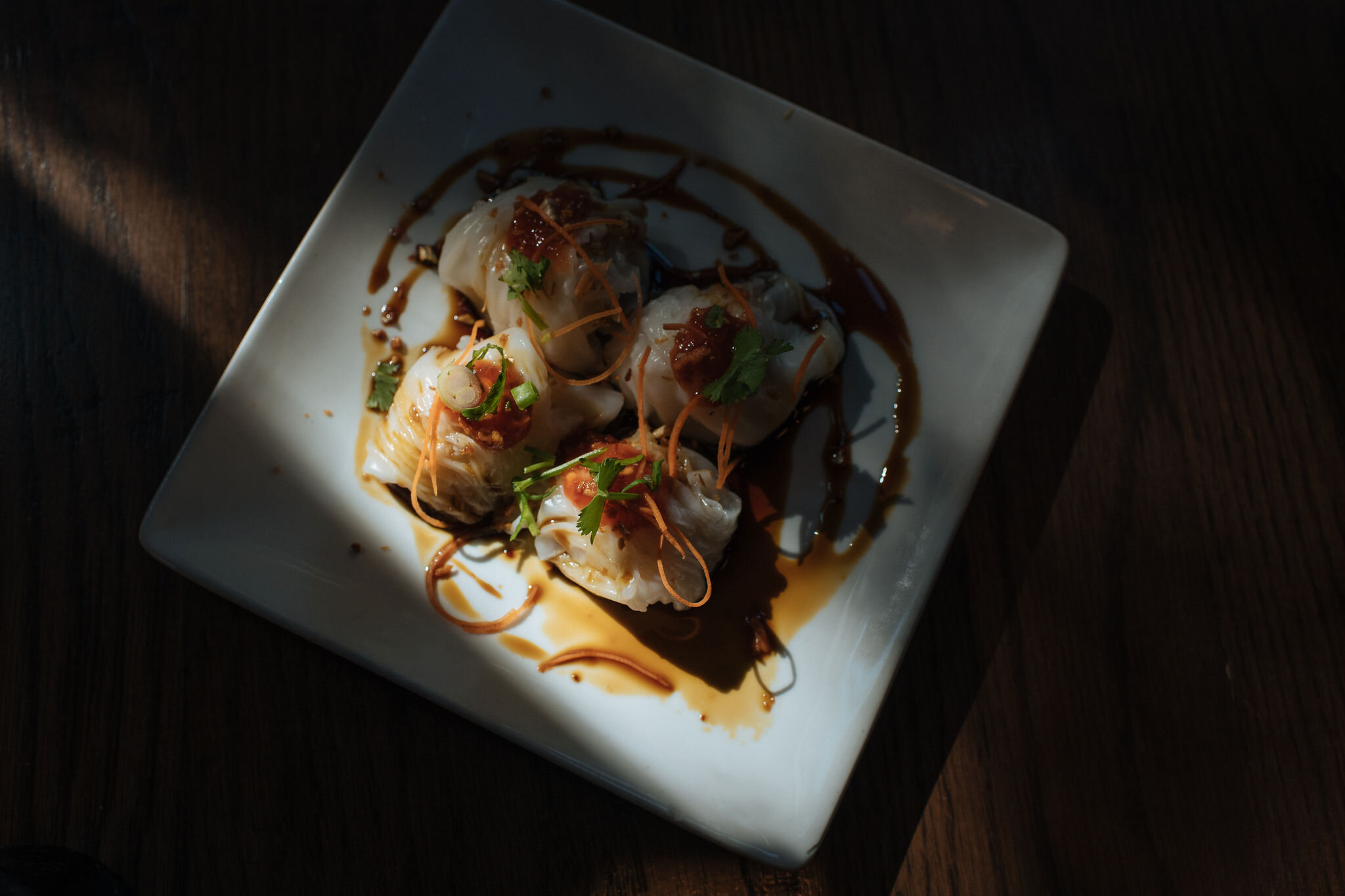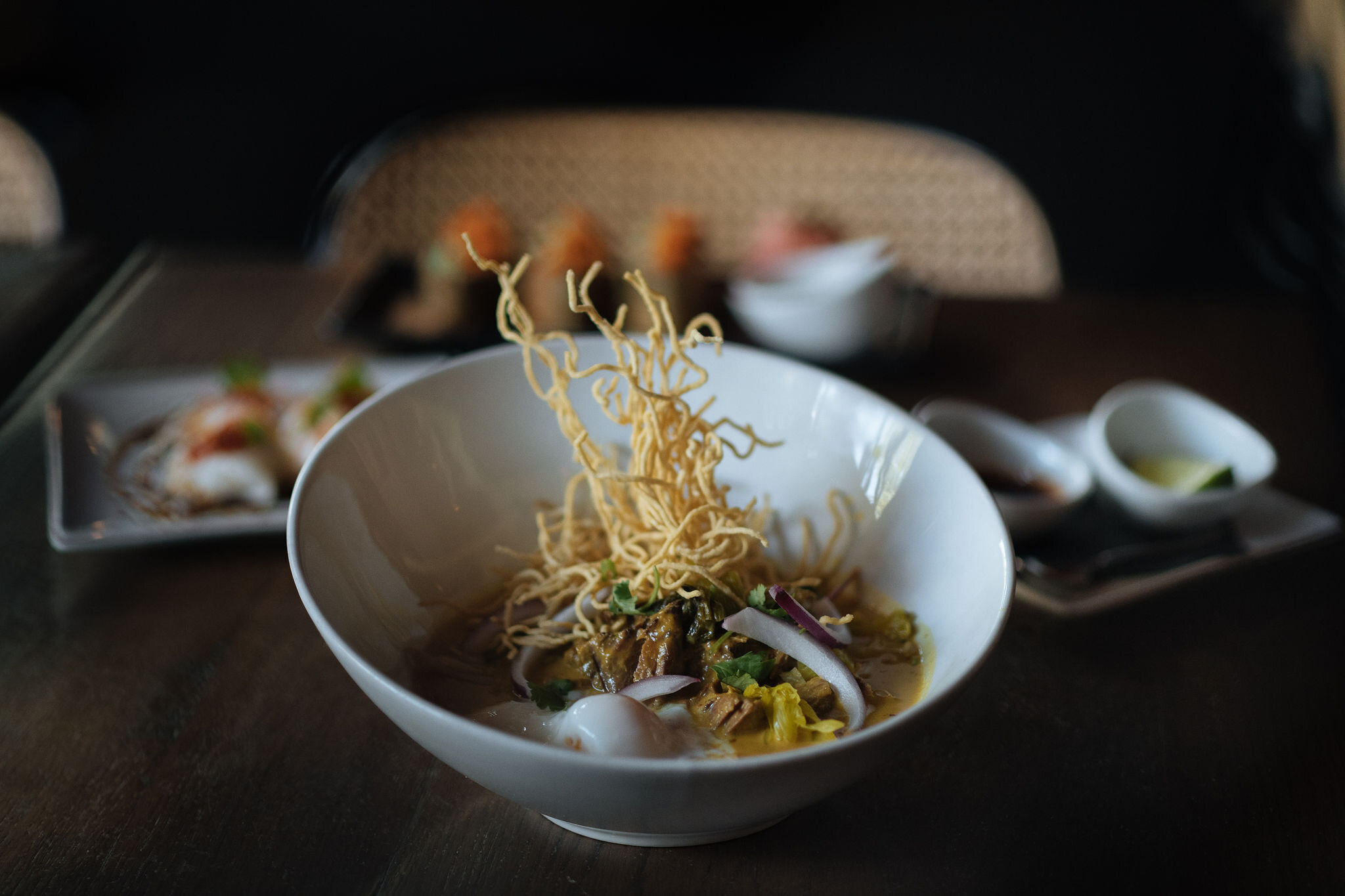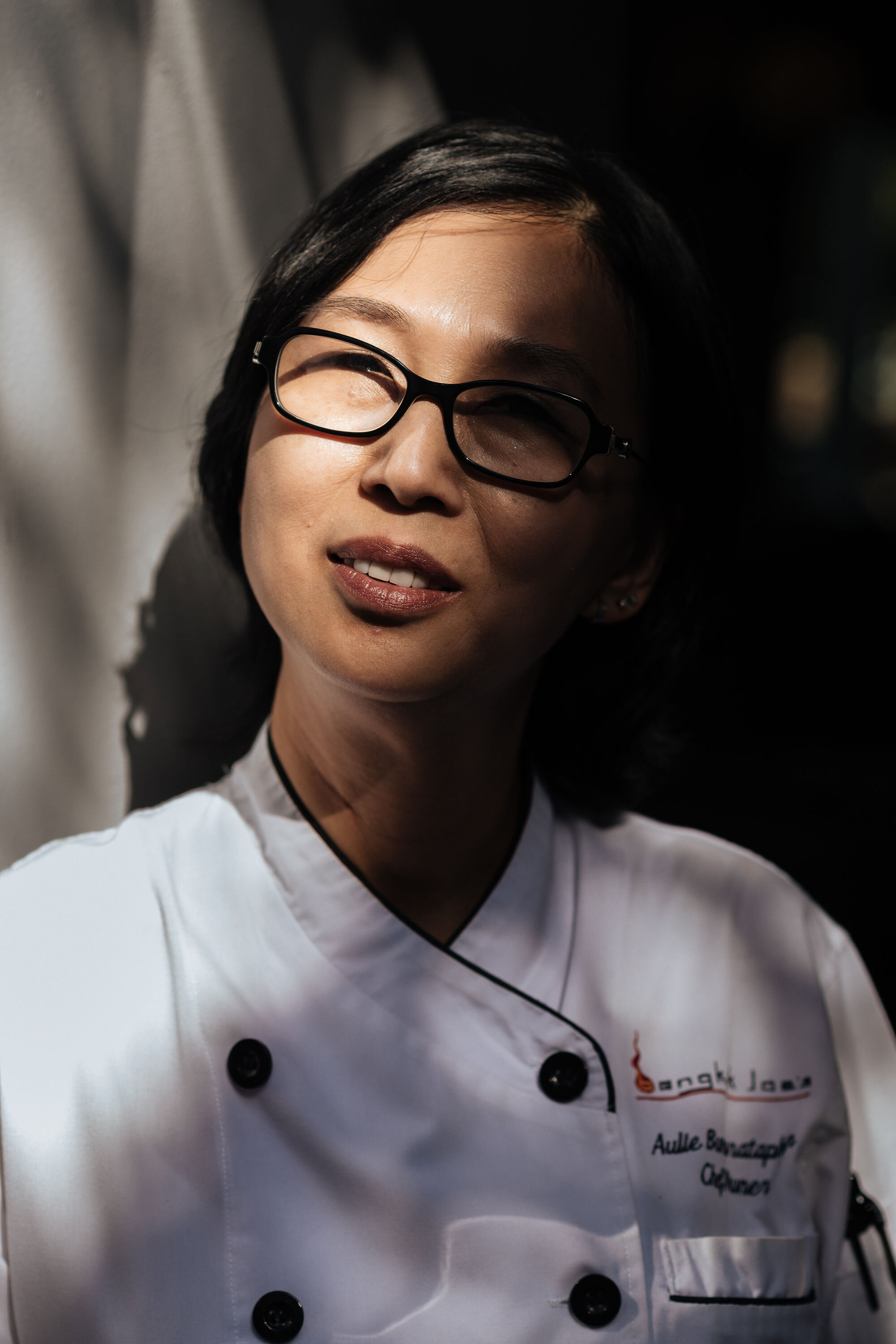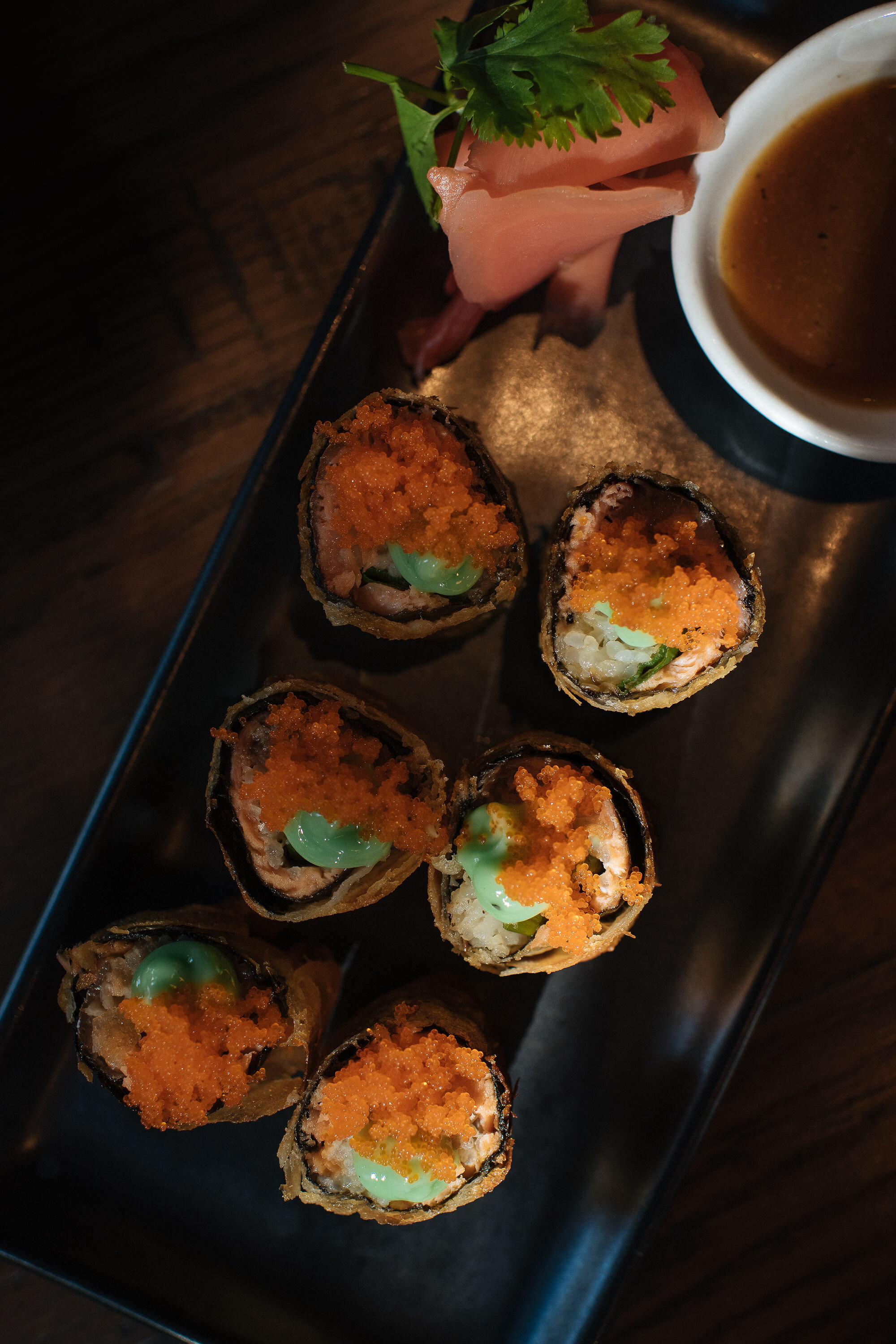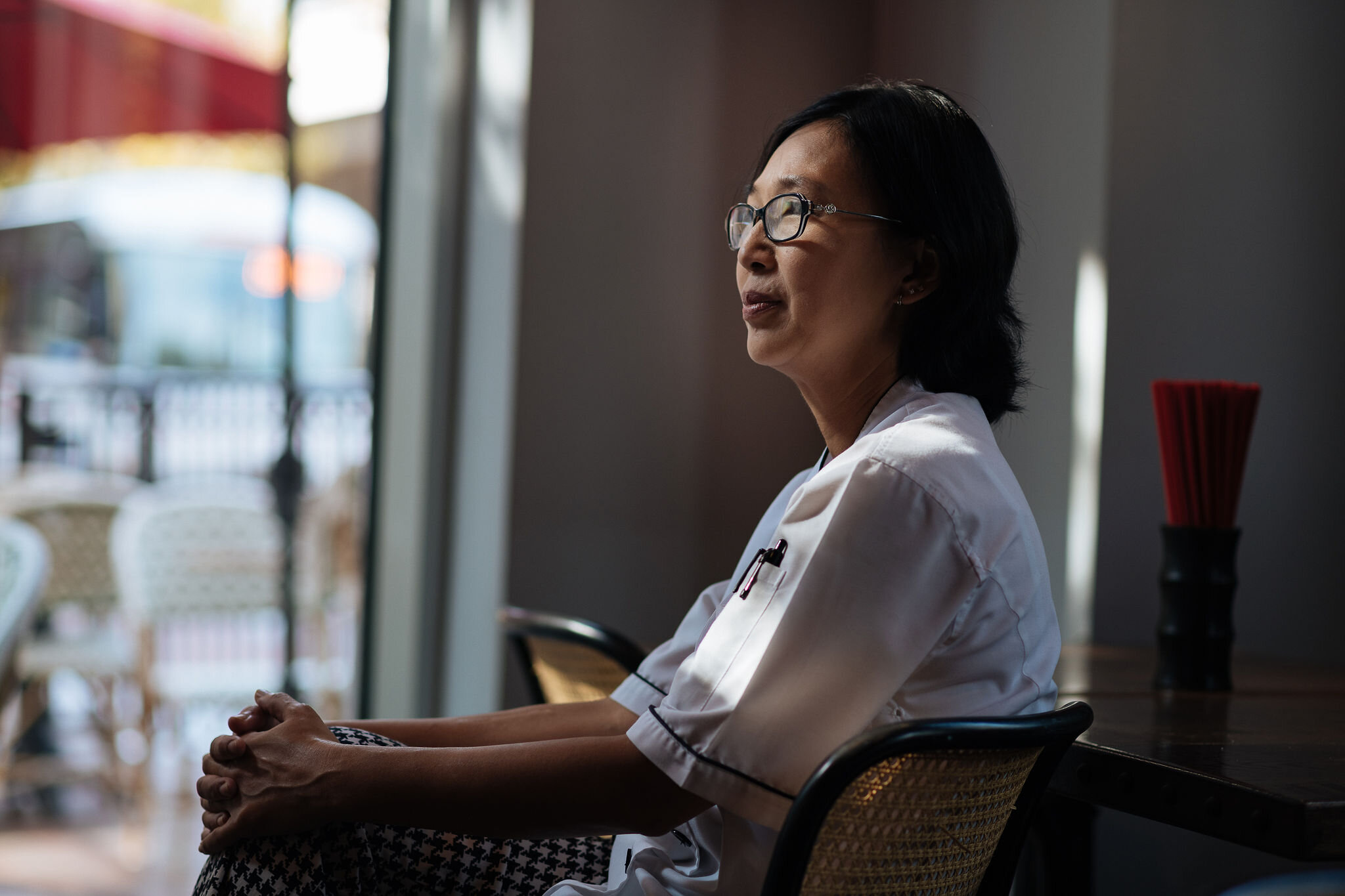‘I Was Changing the Face of Thai Food’
Aulie Bunyarataphan
Chef, Bangkok Joe’s
3000 K St NW
Aulie Bunyarataphan sat in her grandmother’s Bangkok kitchen every morning, watching as she religiously planned and made four meals a day. Young Aulie didn’t have any interest in cooking, unaware that she’d one day serve the very same chicken BUNs in her own Georgetown restaurant.
‘My grandmother had her own cookbook, and that is my heritage. I didn’t know that it got into me. A lot of things on my Bangkok Joe’s menu that are unique to me, I didn’t know I had in me until I started cooking.’
Raised by her traditional grandparents, Aulie was discouraged from moving to Paris and following her dream of becoming a fashion designer. Instead, they sent her to DC in 1985—hopeful the change of scenery would improve her studies.
Aulie pursued computer programming and earned her MBA, but always found herself fidgeting—the urge to create never going away.
‘I liked computers, but I don’t really like to work in a coop by myself.’
By the early 90s, Aulie lived in upper Georgetown—working in an office by day, and as a server in two Thai restaurants at night, where she eventually met her husband. She didn’t have any formal training in the kitchen, but started crafting new menu items.
‘I was young and fun and liked to create things. I liked designing food. I told the owner about these California-style Thai restaurants, and said the food here needs to be similar to that. I told them I want to study more, and change the face of the food.’
Aulie flew to Los Angeles to scope out their Thai restaurant scene, returning to DC with new inspiration and an itch to get in the kitchen. In 1995, she left computer programming for good and opened her own restaurant, Thai Shirlington.
‘We changed the look of Thai food completely. Thai restaurants then looked like mom and pop, with Thai king and queen pictures and white walls, and tables just put there. We won an interior design award for our Shirlington restaurant, with original artwork popping on black walls. We brought that into the food, too.’
Not everyone was initially receptive.
‘When you taste that food, it tastes like Thai food, but it doesn’t look like Thai food—and that scare off the critics. This is not Thai, they say when they see it. I was sad. People don’t really know exactly what traditional Thai food is. They say Thai food doesn’t have sausage, but that’s traditional. Nowadays people know about it, but in 1995, no one did.’
Aulie stayed true to her vision, and it paid off. Diners began traveling from Maryland to try her unique cuisine at the Northern Virginia restaurant—most venturing beyond Pad Thai for the first time.
‘I would always put something weird on the menu. I make things high color. I make flowers into jelly. Pumpkin ice cream.’
In 2003, Aulie opened Bangkok Joe’s in Washington Harbour. Her second restaurant quickly became a Georgetown staple, offering down-to-earth Thai noodle and rice bowls next to inventive takes on duck, lamb, and filet mignon.
Over the years, Aulie has accumulated more than 300 weekly specials, experimenting with everything from pok pok salad with fermented crab, to squash potstickers, and gluten-free soy sauce that’s flavored in-house. She says diners are far more educated than they once were—her restaurant one of what Aulie estimates to be over 500 Thai restaurants in the DMV, compared to about 15 when she first moved to DC.
‘I’ve brought back a lot of sausage and pork belly that 20 or 30 years ago, people will not eat. Now people are more adventurous and they’re willing to try.’
Aulie has never been afraid to take risks, but she also listens to her customers. In 2014, she briefly experimented with a new French-Asian concept and renamed the restaurant Mama Rouge—a nod to her grandmother, whose cooking was heavily influenced by the French nuns who taught at her convent school. Diners were less interested, and Aulie flipped the restaurant back to Bangkok Joe’s.
Today, Aulie and her husband are in their restaurant five to six days a week—still observing what is and isn’t working, and constantly improving the customer experience.
‘You have to love it, because it’s long hours in restaurants. I like to be here; I like to see, even though I have a full staff. They like me to be here because they know I can help them when we’re busy. I can check the food before it’s sent out. We have our own system here, and know exactly what food goes to what seat. We don’t want them auctioning the food at the table.’
Imitation has become the sincerest form of flattery for Aulie, both in service and cuisine; some of her former chefs poached by other restaurants whose menus suddenly mimic Bangkok Joe’s. They can never seem to master the execution, though.
‘One restaurant took my crème brulee, but they didn’t know what to do with it. It’s so funny.’
Aulie knows exactly what to do with each dish, thanks to her grandmother. She didn’t live to see Aulie’s restaurant openings, but her presence is felt in the food. Imitation, in this case, the sincerest form of love.
